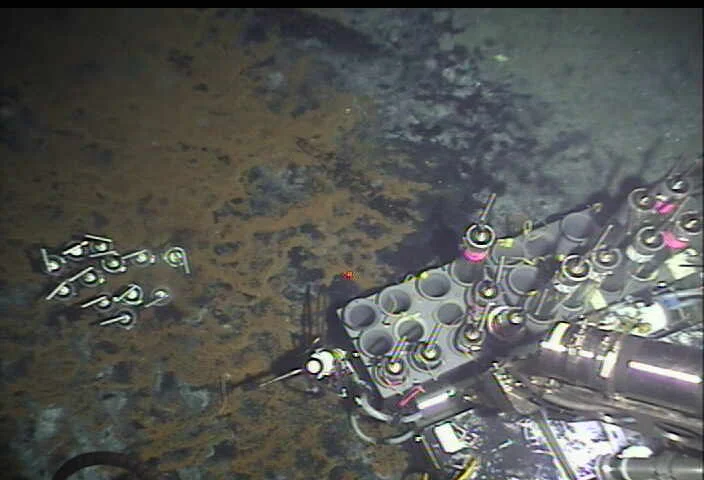Each of us has events in our life that shape our future. As a junior at UNC-Chapel Hill, I was a pre-med major and I took an elective oceanography class. After two weeks of lectures, I was hooked, thanks largely to an incredibly smart, engaging and truly amazing Professor, Dr. Conrad Neumann. Thank You Conrad; you changed my life for the better. Conrad’s enthusiasm for ocean science was contagious and I was hooked.
Getting your bearings
People often ask ‘what’s it like to be in the Alvin?’ My answer is always the same: it’s magical; a life changing experience; more incredible than you could ever imagine. It is magical. It is life changing. It is incredible. But sometimes it’s also frustrating: scientific instruments may not perform to specs or may fail all together and every once in a while, finding a target – that proverbial needle in a haystack a mile under water – is tough. Then there are the cases where you want to do one thing, go to one place, grab one more sample, and for whatever reason, it does not happen and you feel like a failure; those things leave me with a feeling of immense frustration.
Change over time
The Gulf of Mexico is home to many diverse and fascinating super-salty (=hypersaline or brine) habitats. One of the most unique brines we’ve ever sampled in the Gulf is the mud volcano in Green Canyon block 246 (GC246). GC246 is located approximately 200 km SW of the Mississippi Delta on the flank of the upper-middle continental slope in the Gulf of Mexico. The GC246 block consists of featureless mud plains rising to series of a pockmarked mud mounds at depths around 900 m below the sea surface. It is a truly spectacular site.
Truly extreme
So, what is the big deal about salt? The phrases “worth your weight in salt” and “salt of the Earth” derive from the fact that salt that has been a highly valued commodity for millennia (since about 4700 B.C.). The use of salt to preserve food enabled the establishment of civilization. The earliest known European settlement was located around a salt production facility. And, the Romans, among others, valued salt as if it were gold. Salt was used as currency and widely transported and traded. So, humans have long been interested in and vested in salt.
The thrill of discovery
One of the reasons I became an oceanographer is the thrill of discovery. Seeing something that no one else has ever seen generates an amazing rush of excitement. It's indescribable. I suspect that the word "WOW" comes out of my mouth about 30 times each dive. Since we know more about the surface of the Moon than we do about the seafloor on our own planet, there are numerous creatures and features on the seafloor, awaiting our discovery. This is why I believe I have the best job in the world.






